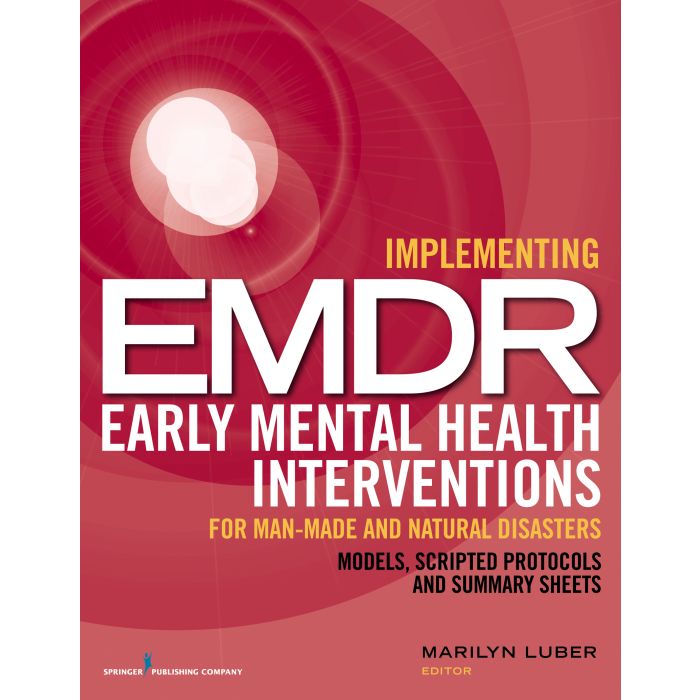Mixed-methods randomised study exploring the feasibility and acceptability of eye-movement desensitisation and reprocessing for improving the mental health of traumatised survivors of intensive care following hospital discharge: Protocol
“This study assesses the feasibility and acceptability of using eye-movement desensitisation and reprocessing (EMDR) to improve the mental health of ICU survivors.”
Article Abstract
‘Introduction Post-traumatic symptoms are common among patients discharged from intensive care units (ICUs), adversely affecting well-being, increasing healthcare utilisation and delaying return to work. Non-pharmacological approaches (eg, music, therapeutic touch and patient diaries) have been suggested as candidate interventions and trauma-focused psychological interventions have been endorsed by international bodies. Neither category of intervention is supported by definitive evidence of long-term clinical effectiveness in patients who have been critically ill. This study assesses the feasibility and acceptability of using eye-movement desensitisation and reprocessing (EMDR) to improve the mental health of ICU survivors.
Methods and analysis EMERALD is a multicentre, two-part consent, pilot feasibility study, recruiting discharged ICU survivors from three hospitals in the UK. We are gathering demographics and measuring post-traumatic symptoms, anxiety, depression and quality of life at baseline. Two months after discharge, participants are screened for symptoms of post-traumatic stress disorder (PTSD) using the Impact of Events Scale-Revised (IES-R). Patients with IES-R scores<22 continue in an observation arm for 12 month follow-up. IES-R scores≥22 indicate above-threshold PTSD symptoms and trigger invitation to consent for part B: a randomised controlled trial (RCT) of EMDR versus usual care, with 1:1 randomisation. The study assesses feasibility (recruitment, retention and intervention fidelity) and acceptability (through semistructured interviews), using a theoretical acceptability framework. Clinical outcomes (PTSD, anxiety, depression and quality of life) are collected at baseline, 2 and 12 months, informing power calculations for a definitive RCT, with quantitative and qualitative data convergence guiding RCT refinements.
Ethics and dissemination This study has undergone external expert peer review and is funded by the National Institute for Health and Care Research (grant number: NIHR302160). Ethical approval has been granted by South Central-Hampshire A Research Ethics Committee (IRAS number: 317291). Results will be disseminated through the lay media, social media, peer-reviewed publication and conference presentation.”
—Description from publisher
Article Access
Open Access
Bates, A., Golding, H., Rushbrook, S., Highfield, J., Pattison, N., Baldwin, D., Grocott, M. P. W., & Cusack, R. (2024). Mixed-methods randomised study exploring the feasibility and acceptability of eye-movement desensitisation and reprocessing for improving the mental health of traumatised survivors of intensive care following hospital discharge: protocol. BMJ Open, 14: e081969. Open access: http://dx.doi.org/10.1136/bmjopen-2023-081969
About the Journal
“BMJ Open is a medical journal. We consider papers addressing research questions in clinical medicine, public health and epidemiology. We also welcome studies in health services research, health economics, surgery, qualitative research, research methods, medical education, medical publishing and any other field that directly addresses patient outcomes or the practice and delivery of healthcare.”
—Description from publisher
Date
January 29, 2024
Creator(s)
Andrew Bates, Hannah Golding, Sophie Rushbrook
Contributor(s)
Julie Highfield, Natalie Pattison, David Baldwin, Michael P W Grocott, Rebecca Cusack
Topics
PTSD
Practice & Methods
Efficacy, Hospital
Extent
8 pages
Publisher
BMJ Publishing Group LTD.
Rights
© Author(s) (or their employer(s)) 2024. Re- use permitted under CC BY. Published by BMJ.
APA Citation
Bates, A., Golding, H., Rushbrook, S., Highfield, J., Pattison, N., Baldwin, D., Grocott, M. P. W., & Cusack, R. (2024). Mixed-methods randomised study exploring the feasibility and acceptability of eye-movement desensitisation and reprocessing for improving the mental health of traumatised survivors of intensive care following hospital discharge: protocol. BMJ Open, 14: e081969. Open access: http://dx.doi.org/10.1136/bmjopen-2023-081969
Audience
EMDR Therapists, Other Mental Health Professionals
Language
English
Content Type
Article, Peer-Reviewed, RCT
Access Type
External Resource, Open Access





